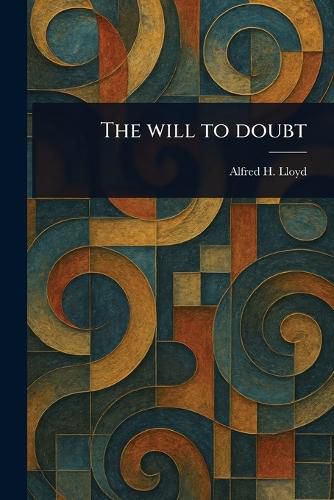Readings Newsletter
Become a Readings Member to make your shopping experience even easier.
Sign in or sign up for free!
You’re not far away from qualifying for FREE standard shipping within Australia
You’ve qualified for FREE standard shipping within Australia
The cart is loading…






This title is printed to order. This book may have been self-published. If so, we cannot guarantee the quality of the content. In the main most books will have gone through the editing process however some may not. We therefore suggest that you be aware of this before ordering this book. If in doubt check either the author or publisher’s details as we are unable to accept any returns unless they are faulty. Please contact us if you have any questions.
Explore the power of skepticism and critical thinking with Alfred H. Lloyd's "The Will to Doubt: An essay in philosophy for the general thinker." This accessible introduction to philosophy delves into the importance of doubt as a tool for understanding and navigating the world. Lloyd examines the relationship between doubt, logic, and reasoning, challenging readers to question assumptions and embrace intellectual rigor.
A seminal work in epistemology, "The Will to Doubt" explores the foundations of knowledge and the role of the will in shaping our beliefs. Through insightful essays, Lloyd encourages readers to engage with philosophical concepts and develop their own informed perspectives. This meticulously prepared print edition ensures the enduring insights of this classic philosophical text are available for anyone interested in philosophy and the power of critical thought. Ideal for those seeking a clear and engaging introduction to philosophical thinking.
This work has been selected by scholars as being culturally important, and is part of the knowledge base of civilization as we know it.
This work is in the public domain in the United States of America, and possibly other nations. Within the United States, you may freely copy and distribute this work, as no entity (individual or corporate) has a copyright on the body of the work.
Scholars believe, and we concur, that this work is important enough to be preserved, reproduced, and made generally available to the public. We appreciate your support of the preservation process, and thank you for being an important part of keeping this knowledge alive and relevant.
$9.00 standard shipping within Australia
FREE standard shipping within Australia for orders over $100.00
Express & International shipping calculated at checkout
This title is printed to order. This book may have been self-published. If so, we cannot guarantee the quality of the content. In the main most books will have gone through the editing process however some may not. We therefore suggest that you be aware of this before ordering this book. If in doubt check either the author or publisher’s details as we are unable to accept any returns unless they are faulty. Please contact us if you have any questions.
Explore the power of skepticism and critical thinking with Alfred H. Lloyd's "The Will to Doubt: An essay in philosophy for the general thinker." This accessible introduction to philosophy delves into the importance of doubt as a tool for understanding and navigating the world. Lloyd examines the relationship between doubt, logic, and reasoning, challenging readers to question assumptions and embrace intellectual rigor.
A seminal work in epistemology, "The Will to Doubt" explores the foundations of knowledge and the role of the will in shaping our beliefs. Through insightful essays, Lloyd encourages readers to engage with philosophical concepts and develop their own informed perspectives. This meticulously prepared print edition ensures the enduring insights of this classic philosophical text are available for anyone interested in philosophy and the power of critical thought. Ideal for those seeking a clear and engaging introduction to philosophical thinking.
This work has been selected by scholars as being culturally important, and is part of the knowledge base of civilization as we know it.
This work is in the public domain in the United States of America, and possibly other nations. Within the United States, you may freely copy and distribute this work, as no entity (individual or corporate) has a copyright on the body of the work.
Scholars believe, and we concur, that this work is important enough to be preserved, reproduced, and made generally available to the public. We appreciate your support of the preservation process, and thank you for being an important part of keeping this knowledge alive and relevant.